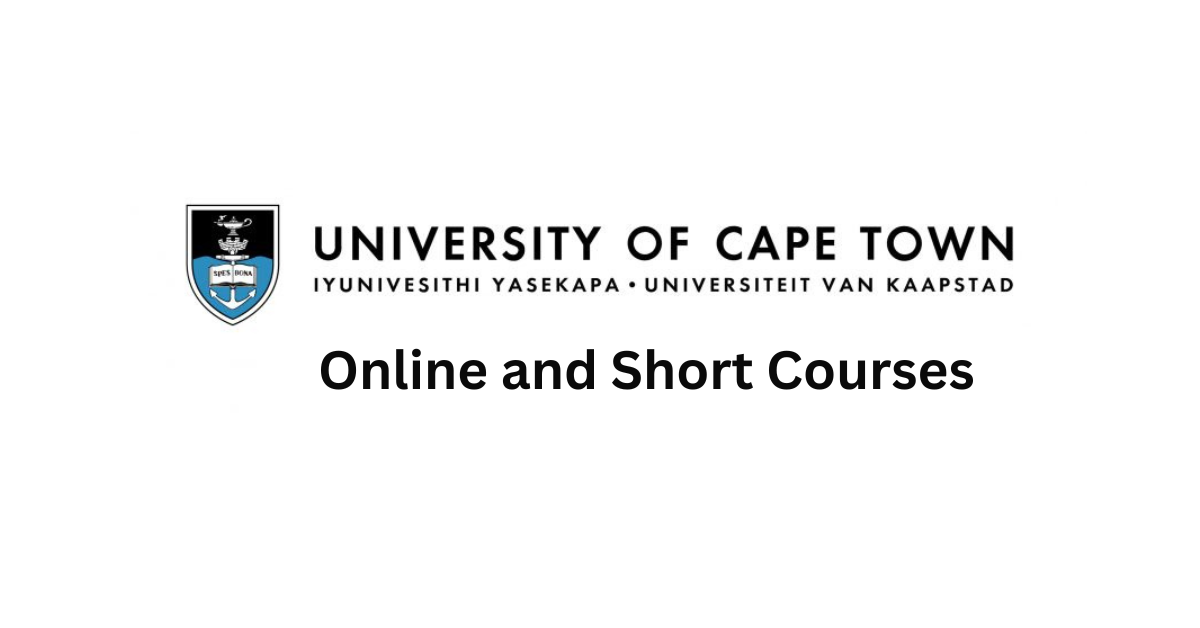The Faculty of Engineering and the Built Environment (EBE) at the University of Cape Town (UCT) is a hub for innovation, creativity, and technical excellence. As one of the leading faculties in Africa, UCT’s EBE faculty offers world-class programs that prepare students to tackle complex global challenges in engineering, architecture, construction, and urban planning.
This guide explores the various courses offered by UCT’s Faculty of Engineering and the Built Environment, with detailed insights into the categories of courses, qualifications, course requirements, and the application process.
Categories of Course
UCT’s EBE faculty is structured to provide students with cutting-edge education in three primary areas: Engineering, Architecture, and the Built Environment. Below is an overview of the courses offered.
1. Engineering Programmes
Engineering programs at UCT are designed to produce technically proficient graduates with problem-solving skills and a deep understanding of societal needs. The main engineering disciplines include:
Bachelor of Science in Engineering (BScEng)
- Civil Engineering: Focuses on the design, construction, and maintenance of infrastructure such as roads, bridges, and buildings.
- Electrical Engineering: Covers energy systems, electronics, and telecommunications.
- Mechanical Engineering: Involves the design and production of machinery, from automobiles to power plants.
- Chemical Engineering: Combines chemistry, biology, and physics to innovate in energy production, material development, and environmental protection.
- Mechatronics Engineering: An interdisciplinary field blending mechanical, electronic, and software engineering.
Postgraduate Programmes in Engineering
- Master’s Degrees (MScEng) in specialized fields like renewable energy, water management, and advanced robotics.
- Doctoral Degrees (PhD) focuses on original research in structural engineering, environmental sustainability, and materials science.
2. Architecture Programmes
Architecture at UCT combines technical expertise with creative design, preparing students to create sustainable and innovative structures.
Bachelor of Architectural Studies (BAS)
This degree is the foundation for a career in architecture, focusing on design principles, architectural history, and construction technologies.
Postgraduate Degrees
- Master of Architecture (Professional): Becoming a registered architect.
- Master of Landscape Architecture: Focused on designing outdoor and natural spaces.
- Doctor of Philosophy in Architecture: Advanced research opportunities for those looking to contribute to architectural theory and practice.
3. Built Environment Programmes
The Built Environment courses address the planning, management, and construction of physical spaces in both urban and rural settings.
Bachelor of Science in Construction Studies
This undergraduate degree equips students with knowledge in construction management, quantity surveying, and property development.
Postgraduate Programmes
- Master of Construction Economics and Management: Specialised training for careers in project management and cost consultancy.
- Doctoral Degrees in Construction and Property Studies: Advanced research opportunities in sustainable construction and real estate development.
Qualification
Each program within the Faculty of Engineering and the Built Environment is structured to provide rigorous academic training while allowing students to develop practical, industry-relevant skills.
Undergraduate Degrees
- Duration: Typically 3-4 years.
- Focus: Foundational knowledge in engineering, architecture, or construction, combined with hands-on projects and design work.
Postgraduate Degrees
- Duration: Master’s programs generally take 1-2 years; doctoral programs can take 3-5 years.
- Focus: Advanced specialization and research opportunities in specific fields of interest.
Course Requirements
Entry requirements vary depending on the program level and specialization.
Undergraduate Programmes
- Academic Requirements:
- A National Senior Certificate (NSC) or equivalent, with a strong performance in mathematics and physical sciences.
- For most engineering programs, a minimum score of 70% in both subjects is typically required.
- Additional Requirements:
- For architecture programs, a portfolio showcasing creative and technical skills may be required.
Postgraduate Programmes
- Master’s Programmes:
- A relevant undergraduate degree with good academic performance.
- Some programs may require professional experience or a research proposal.
- Doctoral Programmes:
- A relevant master’s degree.
- A well-defined research proposal aligned with the faculty’s expertise.
How to Apply
Step 1: Research Your Options
Visit the UCT Faculty of Engineering and the Built Environment website to explore the programs available. Pay close attention to the admission requirements and application deadlines.
Step 2: Prepare Your Documents
Gather all necessary documents, which typically include:
- Certified copies of academic transcripts and certificates.
- Proof of English language proficiency (if applicable).
- A personal statement or motivation letter.
- Portfolio (for architecture programs).
Step 3: Submit Your Application
UCT applications are completed online via the university’s application portal. Ensure you complete all sections of the application form and upload the required documents.
Step 4: Await Feedback
Once your application is submitted, you will receive a confirmation email. The university will evaluate your application, and successful applicants will be notified via email with details on the next steps.
Why Choose UCT’s Faculty of Engineering and the Built Environment?
- World-Class Education: UCT is consistently ranked as one of the top universities in Africa and enjoys global recognition for its academic excellence.
- Industry Connections: The faculty maintains strong partnerships with industry leaders, providing students with internship and job opportunities.
- Sustainability Focus: Many programs emphasize sustainable development and innovation, preparing graduates to address the challenges of the 21st century.
- Diverse Community: Students from around the world choose UCT, creating a vibrant and diverse campus atmosphere.
Conclusion
The UCT Faculty of Engineering and the Built Environment offers a comprehensive range of courses that prepare students for exciting careers in engineering, architecture, and construction. With its commitment to academic excellence, innovative research, and practical training, UCT provides an exceptional foundation for students aspiring to shape the future of our physical world.
For more details on the programs, visit the UCT Faculty of Engineering and the Built Environment website and take the first step toward a rewarding career.



